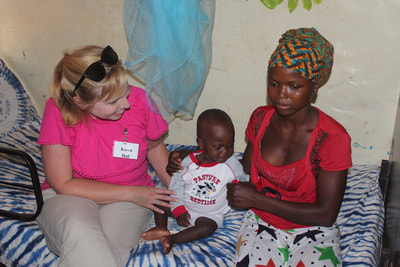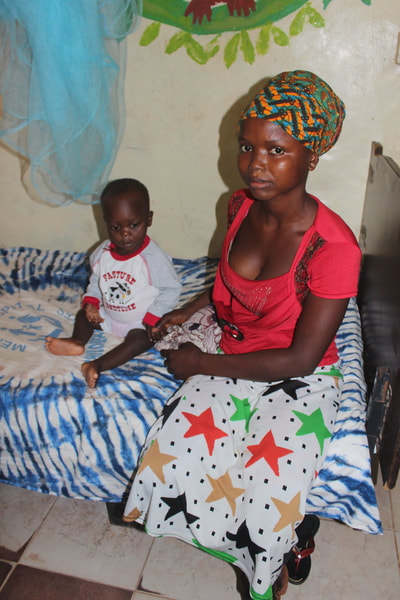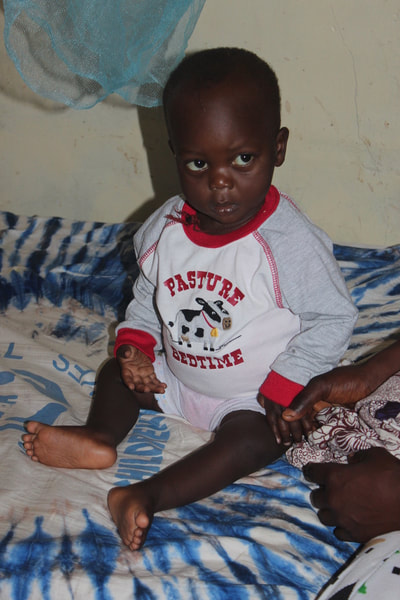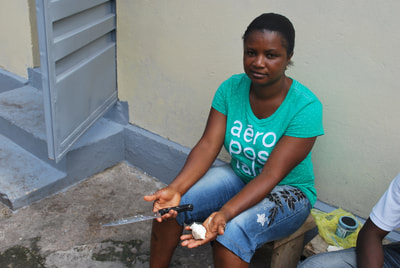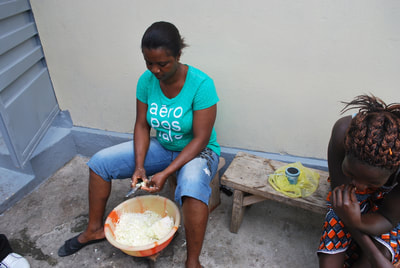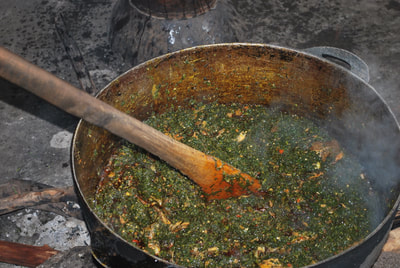|
Have you ever wondered if you should go on a mission trip? Mission travel is not for everyone, so how do you decide if this type of trip is right for you? Here are some reasons to apply for a team. Meet new people and forge new relationships. Mission teams are made up of people from different churches and sometimes different areas of the country. Even if there are others from your home church, you will get to know them in ways that you haven’t been able to before. Additionally, you will get to meet and enter into new relationships with the local staff and people on site where you are serving. Grow in your trust and relationship in God. When traveling on a mission team, you will have the opportunity to experience God’s provision on a daily basis, participate in daily devotions and prayers with your teammates, and with the local staff on the project sites. Because you are outside of your comfortable daily routine be prepared to see God in new and different ways. Grow in compassion and servanthood. The whole idea of traveling on a mission team is to serve other people. You will serve in ways that you may not have imagined. Even though your time will be spent in service to others, you will find yourself served as well. Increased global awareness and cultural appreciation American culture is very task oriented, while other cultures are more relationship focused. By spending time in and learning from other cultures, we can broaden our appreciation of God’s world and become more effective agents for change. Get out of your comfort zone Fear is a great immobilizer. If you let it stand in your way, it can keep you from some wonderful experiences. When we step out in faith and trust God - that is where we experience the greatest growth. Experience worship in a new way Worship in a new cultural setting is an amazing experience. Many of the worship elements are the same, but the difference in rhythms and context can bring a new appreciation to the services. Worshipping God together in a new place with new brothers and sisters can be an awe-inspiring experience. Support the staff and leaders on the ground It can be very draining to serve day to day in a resource poor environment without knowing that you are appreciated and supported. By working side by side with the staff and leaders at the programs, you will be encouraging and equipping them in their important work, making them feel cared for and valued. While these are some wonderful reasons to join a team, there are some cautions. We must pay attention to our motives when applying for a travel team. If we are not careful, the attitudes we bring to mission service can be more harmful than helpful. We must temper our expectations, as a two week trip is not going to do much to change the underlying causes of poverty that you will see. But we can bring love, care, compassion, and support for the ministry partners that are already in the field. Mission trips aren’t right for everyone, and there are some not-right reasons for joining a team. Here are some reasons not to join a mission team.
Evangelizing to the ungodly Many people initially want to travel on a mission team to “take the Gospel to the world”. God is already moving and working around the world. He invites us to go, see, and participate with Him in the work that is already being done. Gain some skills and complete some projects Many people sign up to travel on a mission team to get some work experience, or to complete some projects. Here again, we need to manage our expectations. If you would not be able to do a specific job in the US because you don’t have the skills or qualifications, then you shouldn’t expect to be able to do that job on the mission team. Also, we try to always hire local workmen to accomplish onsite work, as they have the knowledge and expertise to do things right within the environment and culture. Mission is something you do “somewhere else” Expect “mission” to become part of your lifestyle, not an “adventure” or “vacation” that interrupts your routine. You may try something for the first time on a mission trip, but don't go on mission to do what you would not do at home or pretend to be somebody you are not. And especially, don’t go just to do something you could not do at home. We know how to “fix” their problems Too often, Americans think that we have the best answers to every problem, if only others would just listen to us. We arrive on site and present our solutions to problems that we do not fully understand. These solutions are often inconsistent with the cultural, political, or social environment, but we don’t understand why they are reluctant to implement our amazing ideas. This attitude also ignores the real assets and local solutions that may be a better answer. Supporting those who live there to find and implement local solutions is much more sustainable. I’m going to change the world Be careful of high expectations. In the short time that you will be on your trip is it feasible that you will be able to learn the complexities of the underlying causes of poverty and deprivation that you see? And once you believe you understand, will you be able to implement projects and programs that will address those underlying causes? There are no quick fixes to the long-standing complex problems of poverty. It will make me a better person A mission trip experience often will spark spiritual, personal, and emotional growth. But don’t expect that a change in environment will transform you. Actually, the stress of travel and cultural change can bring much of our messiness out into the open. A spiritual whim Joining a mission team is not something to be taken lightly. Training is important, and you will need to commit to attending team training meetings. Spiritual, emotional and cultural preparation has immense value. Don’t be afraid to take some time to prayerfully consider joining a team. And if the deadline is too close for comfort, perhaps waiting for the next opportunity isn’t a bad thing.
0 Comments
17 month old Mohamed, admitted to Mercy Hospital with severe anemia caused by malaria, would die if he didn't receive a blood transfusion, but his O negative blood type is extremely rare and none of his family members could donate. Nurse Karen Hall, who was serving with the July UMVIM team, shares his blood type and gladly volunteered to donate. The family was so grateful to Karen, who truly saved their son's life. Read Karen's story:
"I was all set to go on our team's second medical outreach. I had some time on my hands, so I was visiting with (Medical Programs Field Director Specialist) Kim Sprout at the MTC. Gary, our team doctor walked in pointed at me and said, "what's your blood type?" I told him O negative and he looked like he had seen a ghost. He explained that there was a baby with severe malaria and needed a transfusion. It was virtually impossible to find O negative, and if they found it, it would not make it to Mercy in time to save the baby. Apparently only 7% of the world's population has 0 negative blood type. Gary was not expecting any of the team to be a match. Gary asked me if I was willing to donate, and of course I was. Anyone on our team would have been. Gary said he would let Mercy know and let me know what they said. He must have run, because in no time he was back at the MTC. I went to the lab and George (the Mercy lab manager) did a type and screen on my blood and the next thing I knew the donation had begun. Before I knew it, the donation was complete. I went over to Mercy to let the CHO Deborah know I was finished. I started getting sick and she sent me upstairs to rest. Over the next few hours, I found myself praying with all my heart that the baby would live, that the transfusion would be successful. Before I left the hospital I peeked in on the baby. The mom looked worried out of her mind. I know that look. The baby was receiving the transfusion at that time and was not looking so good. I prayed with all my heart that this would be a story of life. As we know HIs ways are not our ways and our hearts desires are not always the answer. The spirit continues to whisper the same familiar thing..."trust me." That evening Gary had received a good report from Mercy and was very hopeful the transfusion was a success. Later that night there was a complete lunar eclipse, a blood moon. It was only visible in the Southern Hemisphere. I felt like I was in a living Bible story. So often it is hard to see our purpose. To "know that we know that we know" that we are called to something or somewhere. This one time, God gave my heart a beautiful gift too. He gave me something that only I could do at that time. He used something that He gave me when He knit me together in my mother's womb. I think we all have times in our lives where we struggle with our purpose. I have been in that season for a while now. Not on that day or that night...and because of that beautiful gift, not today. I know my purpose, to follow HIS voice. Sweet little Mohamed who was 17 months old went home the following Monday. His family was full of thanks. It was humbling to be thanked for something that had blessed our entire team. Mohamed's family is Muslim, and I love it that on that day we were all one. In it together. Saving each other." Visitors to the Missionary Training Centre always rave about the delicious Sierra Leone cuisine dished up by MTC Manager Fudia Ernest and her amazing staff. It's mild enough for American palates, but with a deliciously piquant African flair, satisfying to body and soul. Many have wondered if they could learn how to make some of Fudia's spicy entrees when they return home. Well, now you can, starting with "Fudia's Famous Groundnut Stew," a crowd pleaser for missioners and Sierra Leoneans alike (download the recipe below.) Groundnuts (as West Africans refer to peanuts) form the base for a rich chicken stew flavored with jalapenos and served over rice. The secret ingredient is Maggi seasoning, available on Amazon (your purchase supports Helping Children Worldwide) or at Lotte stores locally. Coming soon, Helping Children Worldwide will be publishing Fudia's Cookbook, which will be available for purchase on our website, all proceeds to benefit the Missionary Training Centre and missions in Sierra Leone. Stay tuned! Fudia Ernest (below) cooks her amazing culinary creations on an open fire in the kitchen hut behind the MTC. Fudia's Famous Groundnut StewIngredients
Directions 1. Clean and roughly chop the onions, tomatoes, and spring onions. Set aside. 2. In food processor, grind together garlic and desired amount of jalapeños. 3. Season chicken pieces to taste using Maggi seasoning or Season-All. Add garlic/jalapeño mix to seasoned chicken. 4. Place seasoned chicken pieces in large stock pot and cover with water. Bring to a boil and cook for 5 – 10 minutes. 5. Remove the chicken from pot. Set stock aside for later use. 6. In another large stock pot, heat 1⁄2 inch of vegetable oil on medium to medium-high heat. Carefully add chicken pieces to oil and fry until lightly browned. Remove chicken from pan and drain off excess oil. (TIP: to avoid overcrowding your pan, fry chicken in batches) 7. Using the same oil from frying the chicken, add onions and tomatoes and cook over medium heat until softened. 8. Add peanut butter to vegetables and cook until combined, stirring. 9. Add reserved stock to the peanut butter mixture. Simmer over medium heat for 5 – 10 minutes. (If stew seems too thick, add water to mixture to increase volume) 10. Add chicken pieces and tomato paste to peanut butter mixture. Bring to a boil, cover, and reduce to a simmer over medium heat for 20 – 40 minutes, until thickened. 11. While stew is cooking, make rice of choice to pour stew over. 12. When the stew has thickened, remove from heat and let sit for 5 – 10 minutes. It will continue to thicken slightly. 13. Serve over rice and enjoy! *TIP: If you don’t want to butcher, feel free to buy chicken pieces at the grocery store. |
Follow us on social media
Archive
April 2024
Click the button to read heartfelt tributes to a beloved Bishop, co- founder of our mission!
Post
|
Helping Children Worldwide is a 501 (c) 3 nonprofit organization | 703-793-9521 | support@helpingchildrenworldwide.org
©2017 - 2021 Helping Children Worldwide
All donations in the United States are tax-deductible in full or part. | Donor and Privacy Policy
©2017 - 2021 Helping Children Worldwide
All donations in the United States are tax-deductible in full or part. | Donor and Privacy Policy

